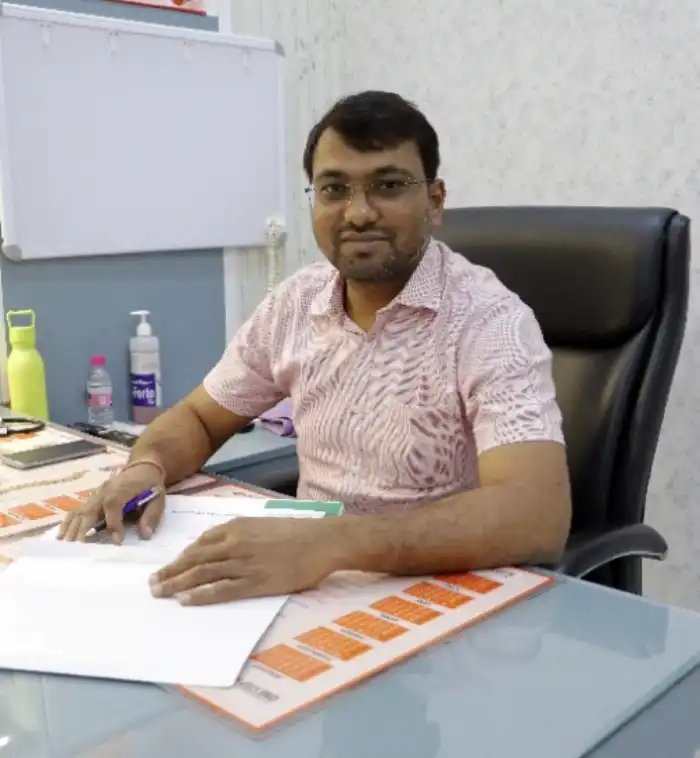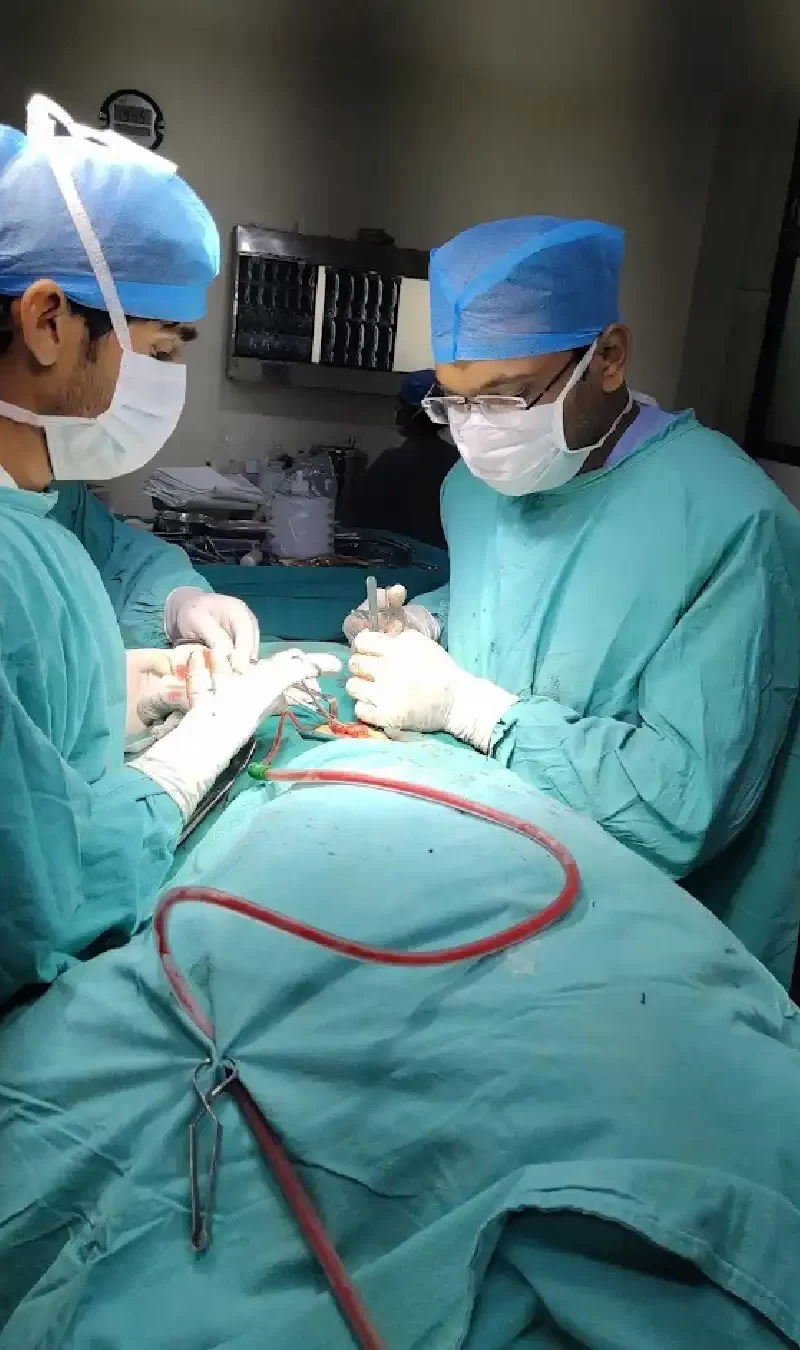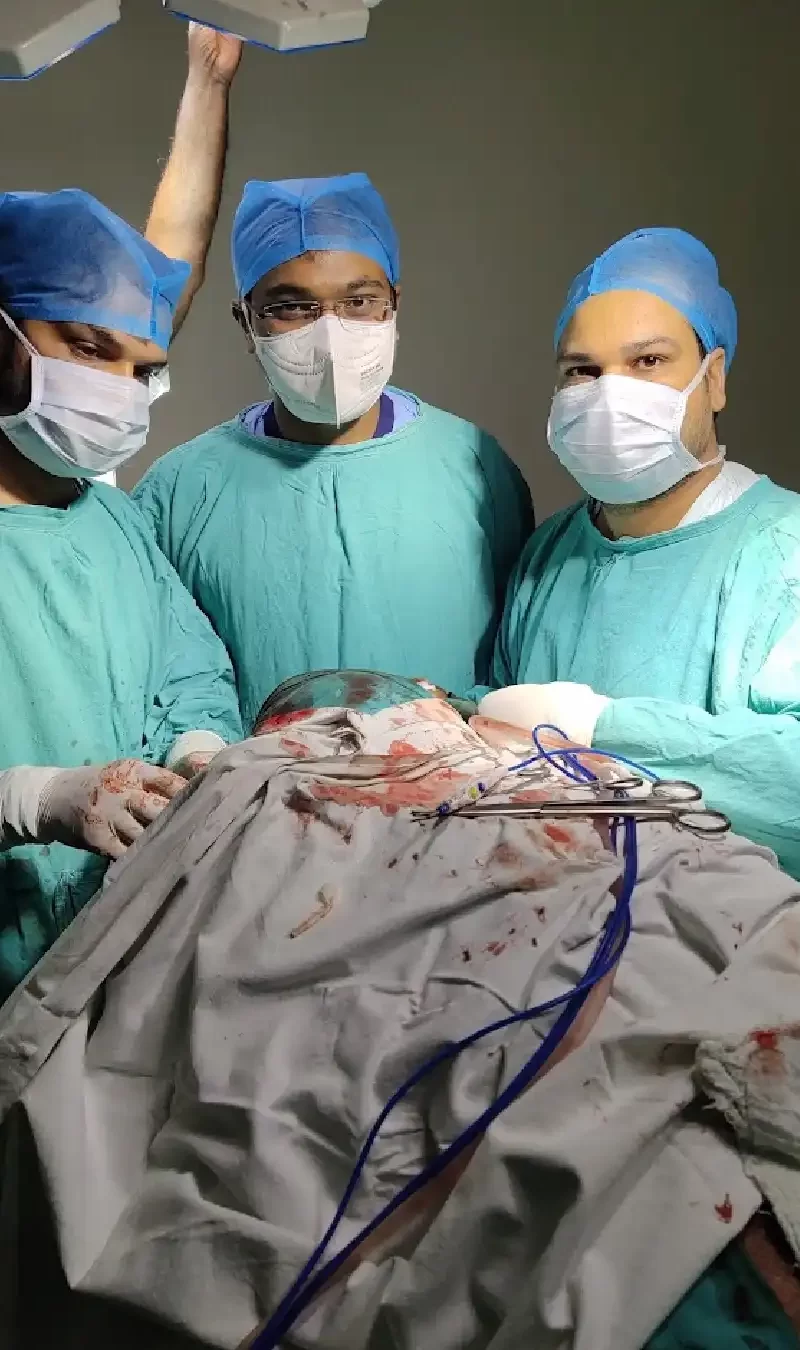Spasticity Treatment

Spasticity Treatment at Plexus
Spasticity, characterized by muscle stiffness and involuntary contractions, can frequently impact a person’s life. At Plexus, we offer comprehensive spasticity treatment designed for individual needs, helping patients regain independence and mobility.
Understanding Spasticity
Spasticity is often a symptom of neurological conditions such as stroke, brain injury, spinal cord injury, multiple sclerosis, or cerebral palsy. It can lead to difficulties with movement, pain, and fatigue.
Symptoms of Spasticity
Increased muscle tone
Stiffness and tightness in muscles
Muscle spasms and cramps
Pain and discomfort
Difficulty moving or walking
Abnormal posture
Changes in reflexes
Difficulty with speech, swallowing, or eating
Causes of Spasticity
Spasticity is often a symptom of an existing neurological condition, including:
Stroke
Spinal cord injury
Multiple sclerosis
Cerebral palsy
Brain injury
Other neurological disorders

Possible Complications of Spasticity
Untreated or poorly managed spasticity can lead to several complications. It’s essential to seek medical attention if you or someone you know experiences symptoms of spasticity.
- Pain and discomfort: Muscle stiffness and spasms can cause significant pain.
- Contractures: Continous spasticity can lead to contractures, where joints become stiff and difficult to move.
- Muscle wasting: Despite increased muscle tone, spasticity can weaken muscles over time.
- Skin breakdown: Pressure sores can develop due to difficulty changing positions.
- Joint deformities: Insense spasticity can cause abnormal joint positioning.
- Difficulty with daily activities: Spasticity can impact activities like dressing, bathing, and eating.
- Falls: Risk of accidental falls due to impaired balance and coordination.
- Psychological impact: Living with spasticity can lead to frustration, anxiety, and depression.
It’s crucial to work closely with your neurosurgeon in Kanpur to manage spasticity effectively and prevent these complications.
Spasticity vs. Rigidity
Spasticity and rigidity are often confused due to their similar manifestations of increased muscle tone. However, they are two different conditions with two different underlying causes.
Spasticity is characterized by increased muscle tone that reduces the movement. It’s often velocity-dependent, meaning it’s more noticeable when you move fast. This condition is commonly associated with damage to the upper motor neurons.
Rigidity, on the other hand, is a constant increase in muscle tone that resists movement in all directions equally. It’s associated with damage to the basal ganglia. Unlike spasticity, rigidity is not velocity-dependent.
While both conditions can significantly impact a person’s quality of life, understanding the difference is crucial for accurate diagnosis and appropriate treatment.
Surgical Treatments for Spasticity
In most intense cases of spasticity where non-surgical treatments prove inadequate, surgical procedures may be considered. These procedures aim to reduce muscle stiffness and improve function.
Intrathecal Baclofen Therapy (ITB)
This involves implanting a pump that delivers medication directly to the spinal cord. It provides consistent relief and often requires lower medication doses compared to oral administration.
Selective Dorsal Rhizotomy (SDR)
This procedure involves surgically severing specific nerve roots in the spinal cord to reduce muscle stiffness. It is primarily used in children with cerebral palsy.
Orthopedic Surgeries
These surgeries address the physical consequences of spasticity, such as contractures and deformities. Procedures may include tendon lengthening, tendon transfer, or bone surgeries to improve functioning and joint alignment.
It’s important to note that surgical interventions should be considered after exhausting other treatment options and should be performed by an experienced neurosurgeon in Kanpur.
Our Approach to Spasticity Treatment
At Plexus, we believe in a multidisciplinary approach to spasticity management. Our team of expert neurologist doctor in Kanpur, neurosurgeons, and the best spine doctor in Kanpur work collaboratively to provide personalized care.
Comprehensive Evaluation
We begin by conducting a thorough evaluation to determine the underlying cause of spasticity and its impact on your daily life.
Customized Treatment Plans
Based on the evaluation, we develop a customized treatment plan that may include:
Medications: Oral or injectable medicines can help in relaxing muscles and reduce spasticity.
Physical Therapy
Our skilled therapists develop exercise programs to improve muscle strength, flexibility, and coordination.
Occupational Therapy
Activities of daily living training can help patients manage tasks with spasticity.
Botulinum Toxin Injections
Injections of Botox into specific muscles can temporarily reduce spasticity.
Intrathecal Baclofen Therapy
For intense spasticity, a neurosurgeon in Kanpur uses a pump implanted to deliver medication directly to the spinal cord.
Surgical Interventions
In some cases, surgical procedures may be considered to address underlying causes or alleviate symptoms.

When Should You See Your Neurosurgeon in Kanpur About Spasticity?
If you’re experiencing symptoms of spasticity, such as muscle stiffness, involuntary contractions, or difficulty moving, it’s essential to consult with a neurosurgeon in Kanpur. Here are some instances when you should seek medical attention:
- Sudden onset of spasticity: If spasticity appears abruptly without a known cause, it’s crucial to consult the best neuro physician in Kanpur promptly.
- Worsening symptoms: If your spasticity is getting progressively worse or interfering with daily activities, it’s time to seek professional help.
- Pain or discomfort: If spasticity causes significant pain or discomfort, it’s important to consult a neurosurgeon in Kanpur for appropriate management.
- Difficulty with daily living: If spasticity hinders your ability to perform everyday tasks, such as walking, dressing, or eating, it’s time to seek medical advice.
- Underlying medical conditions: If you have an existing neurological condition like multiple sclerosis, spinal cord injury, or stroke, and you notice new or worsening spasticity symptoms, consult your neuro physician in Kanpur.
Early diagnosis and treatment can help manage spasticity effectively and improve your overall quality of life.
Our Team of the Best Neurosurgeon in Kanpur
Our team of highly skilled Neurologist Doctor in Kanpur includes:
Neurologist Doctor in Kanpur
Diagnose and manage neurological conditions, including spasticity.
Neurosurgeon in Kanpur
Perform surgical procedures when necessary to address the underlying cause of spasticity.
Spine Specialist in Kanpur
Develop and implement comprehensive rehabilitation plans.
Benefits of Choosing Plexus
In most intense cases of spasticity where non-surgical treatments prove inadequate, surgical procedures may be considered. These procedures aim to reduce muscle stiffness and improve function.
Advanced Treatment Options
We offer a wide range of treatment options to address spasticity effectively.
Expert Care
Our team of neuro specialist near me has extensive experience in managing spasticity.
Personalized Approach
We designed customized treatment plans to meet individual needs and goals.
State-of-the-Art Facilities
Our center is equipped with the latest technology for diagnosis and treatment.
Comprehensive Care
We provide a comprehensive approach to address the physical, emotional, and psychological aspects of spasticity.
Frequently Asked Questions (FAQs)
A neurosurgeon doctor is a medical professional who performs surgery on the brain, spine, and nervous system, while a neurologist Kanpur diagnoses and treats neurological disorders without surgical intervention.
Consult a neurologist in Kanpur for conditions like headaches, seizures, stroke, multiple sclerosis, Parkinson's disease, and nerve pain. A neuro specialist in Kanpur is typically consulted for surgical conditions like brain tumors, spinal cord injuries, or herniated discs.
Common neurological disorders treated in Kanpur include stroke, epilepsy, Parkinson's disease, Alzheimer's disease, multiple sclerosis, brain and spinal cord tumors, and nerve pain.
Research online reviews, check qualifications and experience, and consider recommendations from friends or family.
Consider the neuro specialist in Kanpur's expertise, experience, hospital affiliation, patient reviews, and availability.
In most cases, consulting a neurologist Kanpur first is recommended to diagnose the condition and determine if surgery is necessary.
Treatments range from medications and physical therapy to surgical procedures depending on the condition of the patient.
No, many neurological conditions can be managed with medicines, therapy, and lifestyle changes. Surgery is considered in specific cases.
Recovery time depends on the type of surgery being performed. Most patients require hospitalization and rehabilitation.
Persistent or chronic headaches can sometimes indicate an underlying neurological problem.
Stroke symptoms include sudden numbness or weakness, confusion, trouble speaking, vision changes, dizziness, and severe headache.
Maintaining a healthy lifestyle, including regular exercise, a balanced diet, and avoiding smoking and excessive alcohol consumption, can help reduce the risk of certain neurological disorders.
